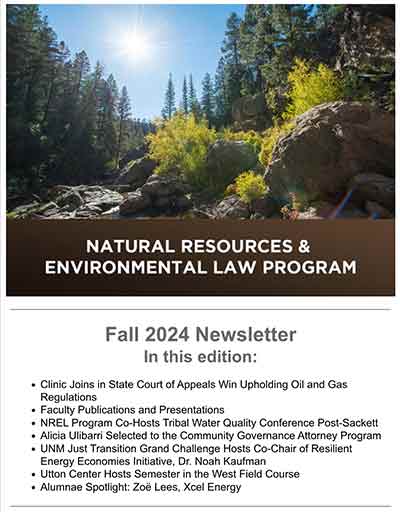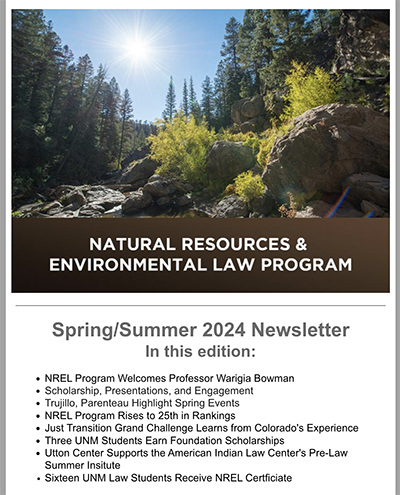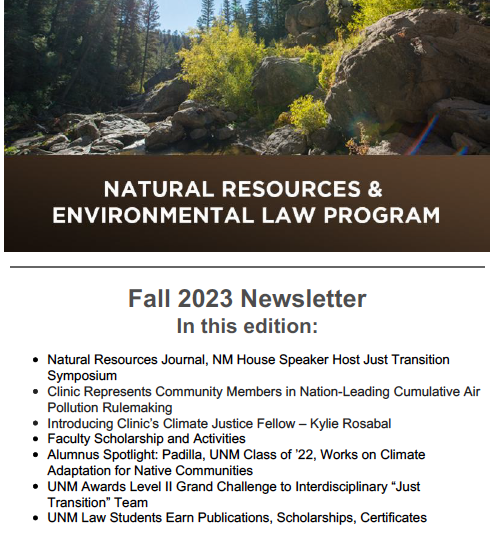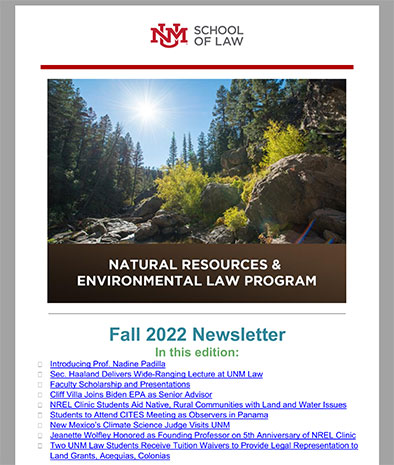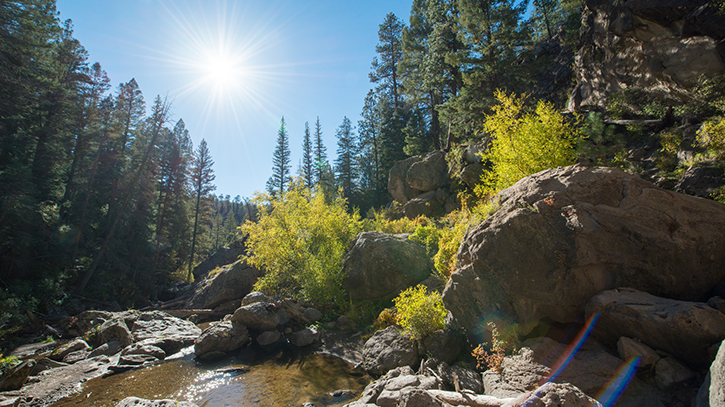Natural Resources and Environmental Law
About the Program
The University of New Mexico’s strong tradition in natural resources and environmental law goes back at least to the 1970s, when we began awarding certificates in natural resources law. Today, UNM’s Natural Resources and Environmental Law (NREL) Program is proud to have earned an A+ rating from PreLaw Magazine in 2020 – one of only 16 schools nationally to receive this grade in environmental law. We appreciate the recognition, but what matters most to us is helping our students gain the knowledge, skills and experience to succeed in this challenging and important field.
UNM offers a wide variety of NREL courses, on topics as diverse as climate change and energy, federal lands, environmental justice, oil and gas, tribal natural and cultural resources, and water law. Students interested in this field may also serve on the editorial board or staff of the Natural Resources Journal, which is the oldest law journal on natural resource issues at any U.S. law school. Seminars and “drafting” courses help students hone their writing skills on a variety of NREL topics. Students who meet specified requirements, including 21 credits of related coursework, earn the Natural Resources and Environmental Law Certificate upon graduation.
UNM also provides opportunities for students to gain hands-on experience working on NREL issues. Our Natural Resources and Environmental Law Clinic allows third-year students to work on a range of real-life matters. The law school’s Utton Transboundary Resources Center employs a variety of students throughout the year, primarily researching NREL issues relating to New Mexico. Externships are also available with a variety of federal and state agencies, as well as nonprofit groups, giving students a chance to earn money and/or credit as they gain experience. Many externship opportunities are within easy reach because UNM is located in the state’s major metropolitan area, and only an hour from the capital of Santa Fe.
UNM is the only law school in New Mexico, a state that offers tremendous natural beauty, deep-rooted and rich cultural diversity, and outstanding recreational opportunities. Energy issues are front and center, as our state is a leader in oil and gas production, and is increasingly moving to develop its abundant solar and wind resources. New Mexico also faces a variety of important challenges relating to water, public health, wildlife, land management, and many other NREL issues. These issues often involve multiple sovereigns, including the federal government (which controls about a third of the land in the state); one or more of the 23 tribal governments within New Mexico; or traditional local entities such as acequias (community irrigation ditches, many of which are centuries old). These qualities and many others make New Mexico a uniquely fascinating and rewarding place to study natural resources and environmental law.




